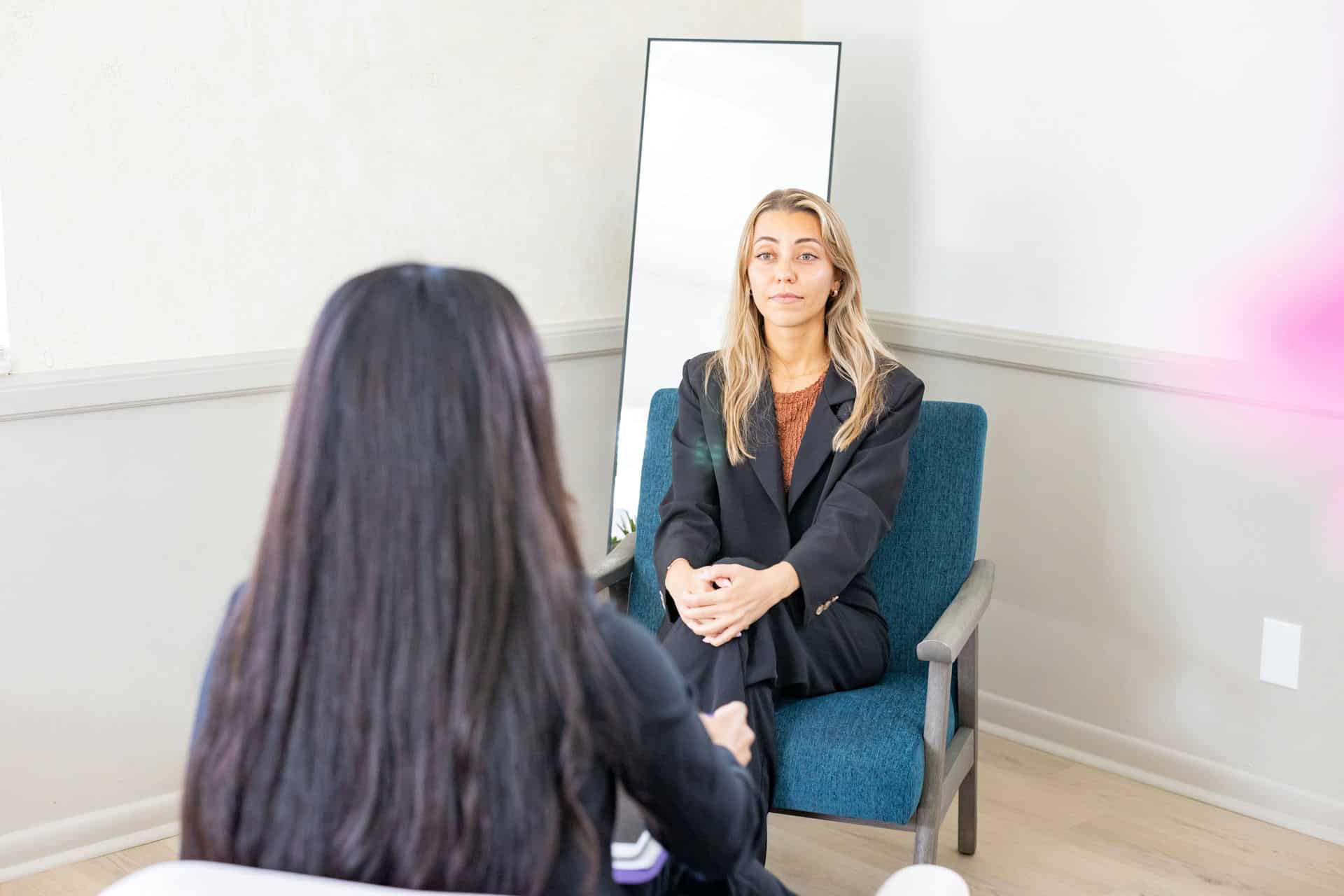Behavioral health encompasses a wide range of mental health issues, including depression, anxiety, mood regulation issues, and more. For individuals who require more than conventional outpatient care but do not need the security of a locked unit or 24-hour care, intensive outpatient and partial hospitalization programs can be a valuable treatment option.
These programs act as a bridge to help individuals transition from inpatient settings to outpatient community settings, or provide additional support for those who are struggling to cope with their symptoms with outpatient therapy alone. In this article, we will explore the benefits of these programs and how they can effectively address various psychiatric illnesses.
Table of Contents
ToggleUnderstanding Intensive Outpatient Programs (IOPs)
Intensive Outpatient Programs (IOPs) provide a higher level of care compared to traditional outpatient therapy. Individuals can still maintain their daily routines and responsibilities.These utilize various interventions like group psychotherapy, psychopharmacology, psycho-education, and individual psychotherapy. Their aim is to provide comprehensive treatment.
The Structure of IOPs
IOPs typically involve scheduled therapy sessions for a set number of hours per week, which may vary depending on the individual’s needs. To accommodate different schedules, we can hold these sessions during the day or evening. Based on progress and treatment goals, one may adjust the frequency and duration of the program.
Key Benefits of IOPs
- Flexibility and Continuity of Care: IOPs allow individuals to receive the treatment they need while still maintaining their regular routines, such as work, school, or family commitments. This flexibility ensures that they can continue to engage in their daily activities while actively participating in their treatment.
- Community Support: IOPs provide a supportive community environment where individuals can connect with others facing similar challenges. This sense of community can reduce feelings of isolation and provide a network of support during the recovery process.
- Holistic Treatment Approach: IOPs offer a comprehensive treatment approach that addresses various aspects of mental health, including emotional, psychological, and social factors. This holistic approach ensures that individuals receive well-rounded care to promote overall well-being.
- Tailored Treatment Plans: IOPs are highly individualized, taking into account each person’s unique needs and goals. The treatment team collaborates with the individual and their loved ones to develop treatment plans that meet their specific requirements.
- Transition and Relapse Prevention: IOPs not only provide treatment but also focus on equipping individuals with the necessary skills and strategies to prevent relapse and successfully transition back into their daily lives. This includes developing coping mechanisms, relapse prevention techniques, and enhancing overall resilience.
Understanding Partial Hospitalization Programs (PHPs)
Partial Hospitalization Programs (PHPs) provide a higher level of care than outpatient therapy. They provide intensive treatment in a structured therapeutic setting for individuals in need. PHPs are especially helpful for those who don’t require 24/7 care but need a higher level of support.
The Structure of PHPs
Similar to IOPs, PHPs involve scheduled therapy sessions for a set number of hours per week. However, PHPs typically offer a more structured daily program, resembling a full-day treatment experience. The frequency and duration of the program may vary depending on the individual’s needs.
Key Benefits of PHPs
- Comprehensive Treatment: PHPs provide a comprehensive and multidisciplinary treatment approach, ensuring that individuals receive the necessary support from a team of healthcare professionals. This can include psychiatrists, psychologists, therapists, and other specialized professionals.
- Safe and Supportive Environment: PHPs offer a therapeutic environment that is safe, supportive, and conducive to healing. This environment allows individuals to focus on their recovery and provides a sense of security during their treatment journey.
- Structured Daily Routine: PHPs provide a structured daily routine that can be especially beneficial for individuals who struggle with managing their time or maintaining a consistent schedule. This structure helps individuals develop healthy habits and promotes stability and routine in their lives.
- Intensive Therapy: PHPs typically offer a higher frequency of therapy sessions compared to other treatment options, allowing individuals to delve deeper into their mental health issues and work through them more intensively. This level of therapy can accelerate the healing process and facilitate long-lasting recovery.
- Continuity of Care: PHPs serve as a step-down option for individuals transitioning from inpatient settings, ensuring a smooth continuum of care. These programs can provide a bridge between the more intensive inpatient care and the less intensive outpatient care, allowing for a gradual transition to independent living.
Addressing the Unique Challenges Faced by Military Personnel
It is worth noting that behavioral health issues, including depression, anxiety, and post-traumatic stress disorder (PTSD), are prevalent among military personnel. Sold face unique challenges, including combat exposure and dangerous environments. These experiences can contribute to the development of mental health disorders. Military personnel may also struggle with readjustment processes and the memories and experiences they bring home with them.
The Role of Intensive Outpatient and Partial Hospitalization Programs
Intensive outpatient and partial hospitalization programs provide specialized care for military personnel, addressing their unique needs and experiences. These programs are particularly beneficial in supporting their overall well-being. These provide a supportive environment for individuals to address challenges and receive necessary treatment for better mental health. They also offer resources to promote overall well-being.
Treating Co-Occurring Disorders
It is important to note that PTSD and substance use disorders often co-occur, with a bidirectional relationship between the two. Individuals with PTSD may turn to alcohol or drugs as a means of coping with their symptoms.
Conversely, those with a history of alcohol use disorder or substance use disorders are more susceptible to developing PTSD. Intensive outpatient and partial hospitalization programs offer integrated treatment, addressing co-occurring disorders. These programs target both mental health and substance use issues.
The Vital Role of Intensive Outpatient and Partial Hospitalization Programs for Military Personnel
Intensive outpatient and partial hospitalization programs play a crucial role in addressing the mental health needs of individuals who require a higher level of care than traditional outpatient therapy can provide. These programs offer flexible treatment options, comprehensive care, and tailored treatment plans to support individuals on their path to recovery.
For military personnel facing unique challenges, these programs can provide the specialized care they need to address behavioral health issues and promote overall well-being. By utilizing the benefits of intensive outpatient and partial hospitalization programs, individuals can receive the necessary support to overcome their mental health challenges and lead fulfilling lives.

Stephanie Robilio is an accomplished Clinical Director at Agape Behavioral Healthcare. With a Master of Social Work degree, LCSW license, and extensive training in Rapid Resolution Therapy under her belt, she brings a wealth of expertise to her role. Her unique combination of education and experience allows her to provide exceptional care to clients and lead her team with confidence. Stephanie’s joy comes from witnessing the moments when her patients creatively connect the dots and bravely move toward reclaiming their power. Her purpose is to help individuals understand their past so they can create a future full of hope, growth, and success. Stephanie attributes a large portion of her success to the supportive culture and strong sense of community fostered by the Agape team.







